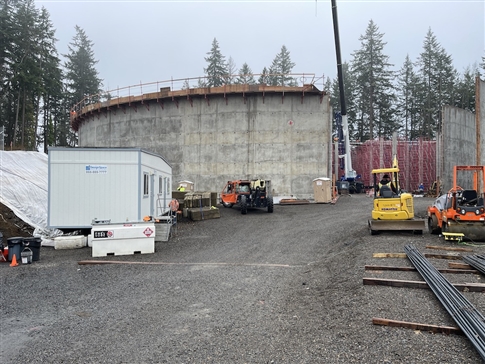Related News
Related News
-
Our Favorite Photos of 2025
For a final look-back at 2025, we’d like to share some of our favorite photos that illustrate our work day-in and day-out. We celebrate amazing teamwork, vital partnerships, and sing the praises of our individual champions and their quiet dedication to serving our community!
Find Out More -
EWEB Sets 2026 Budget and Rates, Advances Evaluation of McKenzie Valley Service Territory Realignment
Taken together, the 2026 budget and rate adjustments and the territory-realignment evaluation reflect EWEB’s dedication to responsible financial stewardship, modern, resilient utility infrastructure, and thoughtful planning for the future.
Find Out More -
Let's Talk Turkey. Is your family ready for winter?
We're heading into the holidays, but that also means snow, ice, and not-so-nice weather might be in the forecast. Here are some tips to prepare in advance.
Find Out More -
EWEB Hosts Annual Spill Drill to Protect McKenzie River
EWEB led emergency responders in its annual “spill drill” on the McKenzie River on Wednesday, Oct. 15, at the Trail Bridge Campground.
Find Out More -
A day in the life: Monitoring water quality throughout the McKenzie Watershed
Follow Senior Environmental Specialist David Donahue as he collects water quality samples from throughout the watershed as part of EWEB's early warning system for threats to Eugene's drinking water.
Find Out More -
EWEB Partners with Eugene School District 4J to Celebrate New Kennedy Middle School Emergency Water Station Site
Hundreds of attendees practiced filling up water containers at Saturday's demonstration event.
Find Out More -
Electric Projects underway in North & South Eugene
Underground lines and disaster-resilient power poles are part of EWEB’s infrastructure upgrade near Eugene’s largest natural resource area.
Find Out More -
Quartz Creek: Setting the Stage for Floodplain Restoration
The project resets the floodplain along 1.8 miles of a formerly channelized creek to improve water quality, fish habitat and natural disaster resiliency.
Find Out More -
Pure Water Partners: 5 Years of Regeneration
As EWEB and the Pure Water Partners observe the fifth anniversary of the Holiday Farm Fire, we celebrate major milestones in the watershed's recovery and check back in with PWP landowners who still have a lot of work ahead as they continue to rebuild their lives.
Find Out More -
Join the Pledge to Prepare
When you think about getting ready for an emergency, you probably have questions. You aren't alone. Preparing for emergencies can be overwhelming, which is why EWEB has put together a 12-month program to help you and your family get two weeks ready.
Find Out More -
You can’t predict the next disaster, but you can prepare
The earthquake lasted less than a minute. But now the power’s out. The tap runs dry. Cell service is spotty. Would you be ready?
Find Out More -
EWEB Celebrates Operators on the 75th Anniversary of the Hayden Bridge Filtration Plant
Learn more about the Water Treatment Plant Operators who have kept the Hayden Bridge Filtration Plant running for the last 75 years.
Find Out More -
NASA partners with EWEB to assess wildfire impacts to drinking water
NASA's Earth Information Center shares a new video detailing how EWEB's Drinking Water Source Protection work is advising new research tools
Find Out More -
EWEB prepares for wildfire season with risk mitigation measures
EWEB is building a more resilient electric system to weather various types of disasters, from wildfire to winter storms.
Find Out More -
EWEB environmental specialist wins prestigious awards for publication
Article recounting EWEB’s efforts to protect the McKenzie River after Holiday Farm Fire earns national recognition
Find Out More - Show More
EWEB to replace aging College Hill Reservoir with new earthquake-proof storage tanks
April 05, 2023 • Jen Connors, EWEB Communications

After serving Eugene for over 80 years, the 15-million-gallon (MG) College Hill Reservoir has reached the end of its useful life. EWEB will dismantle the leaky and antiquated reservoir and replace it in the next few years with new, modern drinking water storage tanks built to withstand major earthquakes.
Construction could begin as early as 2024.
The reservoir – which serves all homes and businesses, and provides emergency water for critical community needs, including fire suppression – is nearing the end of its useful life and fails to meet current seismic standards. It is unlikely to survive a major earthquake, resulting in Eugene losing critical supplies of safe drinking water in the event of a disaster.
In addition, the Oregon Health Authority (OHA) is requiring EWEB to rehabilitate or decommission the reservoir by the end of this year because of leaking roof joints, which creates the potential to degrade the water quality.
“Our top priority is ensuring supplies of healthy drinking water everyday – including when disaster strikes,” said EWEB Chief Operating Officer Karen Kelley. “We’re making decisions about how and when to dismantle and rebuild water storage at College Hill based on the needs of our community for safe, reliable water, efficient operation of the water system as a whole, and costs to customers.”
EWEB informed neighbors in 2020 of plans to take College Hill out of service and has spent nearly three years evaluating a demolition and construction schedule.
College Hill’s crucial role in EWEB’s water system
The reservoir was built during the Great Depression as part of Franklin D. Roosevelt’s Works Progress Administration program. In the decades since, the 15-million-gallon reservoir has been part of the backbone of Eugene’s water system.
College Hill is part of a network of tanks, referred to as “base level” storage. The existing base level system includes College Hill, a 20-million-gallon tank on Hawkins Lane, and a 20-million-gallon tank in Santa Clara.
To maintain sufficient water pressure throughout the system, EWEB must develop replacement base level storage before draining the College Hill Reservoir. To do so, EWEB is building new storage tanks near E. 40th and Patterson St. Construction started in 2021 and is on-schedule for completion later this year.
“Pending completion of the replacement storage at East 40th, EWEB can move forward with the next steps in our Water System Master Plan, which aims to replace all of our base level reservoirs with new, seismically resilient storage tanks,” said Karen Kelley. “Based on recent assessments of EWEB’s base level reservoirs, we determined that College Hill will be the next reservoir to be replaced.”
During those recent assessments, EWEB discovered that the cover for the Santa Clara reservoir is nearing the end of its useful life, sooner than previously anticipated.
“We will need replacement storage in order to take Santa Clara out of service and it makes sense to construct at College Hill next because EWEB has existing OHA requirements to decommission that facility by end of 2023,” said Kelley.
The Hawkins tank will eventually need to be replaced as well for seismic reasons, but that facility is newer; it was constructed in 1963 and has passed OHA inspections.
New tanks at College Hill
EWEB plans to replace the existing 15-million-gallon College Hill Reservoir with two smaller tanks that will store 7.5 million gallons each, comparable to the tanks currently under construction at E. 40th. Smaller tanks are part of an EWEB strategy to diversify Eugene’s water storage system, enhancing resiliency, water quality, and operations.
Removing the existing College Hill Reservoir will create big changes for the neighborhood. The 2.5-acre paved top of the reservoir has served as a unique public space for decades. EWEB worked with neighbors for over a decade to maintain public access to the site and protect drinking water beneath the leaky roof, including prohibiting dogs and fireworks from the top and a neighborhood-led reservoir watch to quickly detect any potential contaminants.
At this time, EWEB anticipates that the public will continue to have access to the top of the existing reservoir at least through 2023, but the new tanks, once constructed, will be fenced to protect drinking water quality.
“Contemporary public health standards require that drinking water facilities need to be secure. That’s just common sense,” said Kelley. “We plan to maintain open public space at College Hill outside of the fenced tanks, and we will be inviting public input on landscaping, recreational facilities and other amenities.”
Demolition and construction at College Hill could begin as early as 2024. EWEB will spend the next several months developing preliminary engineering plans and project schedules.
According to Oregon’s State Historic Preservation Office (SHPO), the facilities at the College Hill Reservoir are identified as historically significant. EWEB is working with the SHPO and plans to invite public input on ways to honor the historic nature of the site once the reservoir is removed.



